Another Kurdish Political Prisoner Executed In Iran
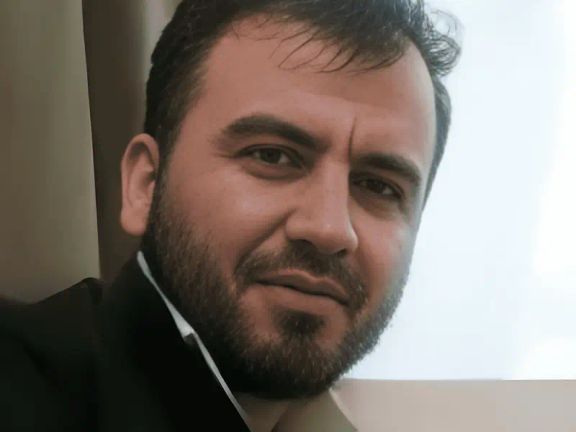
Iranian Kurdish political prisoner Davoud Abdollahi was executed on Tuesday morning in Karaj's Ghezel-Hesar Prison amid ongoing persecution of the minority.

Iranian Kurdish political prisoner Davoud Abdollahi was executed on Tuesday morning in Karaj's Ghezel-Hesar Prison amid ongoing persecution of the minority.
Abdollahi, imprisoned for 14 years, had been on a hunger strike since December 26 in protest at his being moved to solitary confinement for the execution.
Alongside six other Kurds – Qasem Abasteh, Ayoub Karimi, Anwar Khezri, Farhad Salimi, Kamran Sheikheh, and Khosrow Besharat – Abdollahi was detained in December 2009 on charges related to the murder of Abdolrahim Tina. Months of interrogation followed in the intelligence detention center in Urmia.
The charges against the seven individuals included "acts against national security," "propaganda against the system," "membership in Salafi groups," and "waging war against God and corruption on earth."
They were initially sentenced to death in 2017, but the Supreme Court overturned the verdict and referred the case to Branch 15 of the Revolutionary Court in Tehran for review. However, in June 2018, Branch 15 issued another death sentence for them.
The Supreme Court confirmed the death sentences in February 2020. Qasem Abasteh was executed on November 6, and Ayoub Karimi's death sentence was implemented on November 29. With the execution of Abdollahi, four others are currently at risk of execution.
Human rights organizations have repeatedly condemned the severe torture inflicted upon these prisoners and the extraction of forced confessions. Amnesty International warned in February 2021 that the seven Sunni Kurds were at risk of execution, stating that their trials were extremely unfair and based on confessions obtained under torture.
It is part of a massive execution wave in Iran. In the latest annual report, Human Rights Activists In Iran (HRANA) claimed the execution of 746 individuals, noting a 32 percent increase of executions from 2022 and death sentences issued rising by 68 percent.
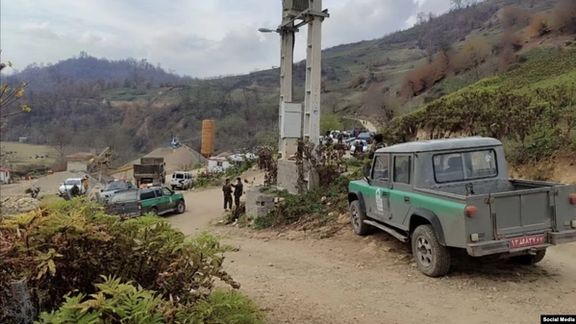
About 200 security personnel have stormed the village of Ahmadabad in northern Iran, confiscating nearly 40 hectares of Baha'i-owned lands.
According to reports, on Sunday, personnel from the Natural Resources Organization, accompanied by dozens of special unit officers and intelligence forces, conducted a raid on Ahmadabad village.
The officers seized mobile phones from village residents, preventing them from communicating and capturing footage. Since Sunday evening, the local inhabitants have been prohibited from moving in and out and the roads have been blocked, impeding the movement of local residents.
Reports indicate that the security forces intensified their actions on Monday, targeting the agricultural lands and fields of the villagers.
A statement was issued by 147 political and civil activists condemning the recent wave of ruthless suppression by the Islamic Republic. Prominent figures such as Mehrangiz Kar, Mansoureh Shojaee, and Reza Alijani are among the signatories.
They highlight the systematic deprivation of Baha'is' civil rights under the religious dictatorship, citing issues such as the lack of basic rights like marriage registration, education, and employment. The statement also condemns the forced displacement of some Baha'is to desolate areas, the seizure of properties belonging to impoverished Baha'i villagers, and arbitrary detentions and harsh judicial sentences based on unfounded and false accusations.
Unofficial sources estimate that over 300,000 Baha'is live in Iran. However, the Islamic Republic's constitution officially recognizes only Islam, Christianity, Judaism, and Zoroastrianism.
Baha'is constitute the largest religious minority in Iran and have been systematically targeted for persecution since the 1979 revolution and the establishment of the Islamic Republic.
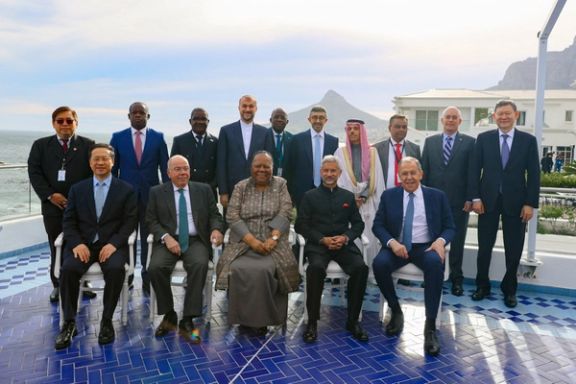
Iran officially became a member of the China-led BRICS economic organization on Monday, as it seeks to overcome the impact of US sanctions and overcome it isolation.
In its policy of finding shelter under Chinese and Russian-dominated international organizations, Iran achieved full membership in the Shanghai Cooperation Organization in July 2022 and concurrently pursued entry into the BRICS group. Following an official invitation, Iran announced its acceptance into BRICS on August 24, 2023, with the official membership commencing on January 1, 2024.
Iran's Foreign Ministry spokesman, Nasser Kanaani, announced the news on Monday as an important achievement for Tehran, emphasizing the potential for economic potential BRICS can offer. Ehsan Khandouzi, Iran's Finance and Economic Affairs Minister, expressed hope for global engagement and for increased trade opportunities with BRICS countries, despite US sanctions.
Iranian officials, who feel the need to calm domestic anxieties about the economic crisis gripping the country since 2018, routinely tell citizens that BRICS could challenge the dominance of the US dollar, and alleviate the financial crisis brought about by the US sanctions. Despite these assertions, domestic markets know that the Chinese themselves heavily rely on the US dollar for trade. Lack of confidence in the foreign and economic policies of the government has played a major role in the 12-fold devaluation of the Iranian rial against major currencies since 2018.
In Iran’s domestic political dynamics, BRICS is presented as a mechanism and an opportunity to challenge the United States and boost trade.
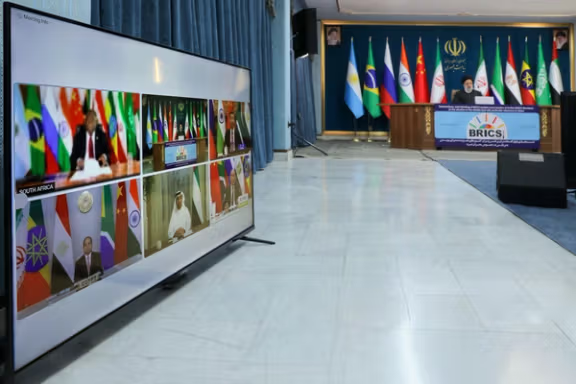
Despite these perspectives, skepticism remains about the practical benefits of Iran's BRICS membership, especially concerning economic implications. Geopolitical tensions, such as Russia's invasion of Ukraine and China's strained relations with the United States, complicate BRICS' role as a counterweight to the West.
During the BRICS summit in August 2023, Iranian President Ebrahim Raisi and Chinese President Xi Jinping emphasized bilateral cooperation and opposition to “American unilateralism.” While some individuals are optimistic, Tehran observers doubt practical benefits, emphasizing the need to address relations with the US and resolve the dispute about Iran’s nuclear program for meaningful membership impact. Former UN diplomat Kourosh Ahmadi has warned against illusions about potential benefits from SCO and BRICS, suggesting such beliefs could be more harmful than not being members at all.
Challenges
Not all BRICS members may be equally enthusiastic about Iran's inclusion, and not every existing member supported Iran's decision to join. Additionally, the impact of US secondary sanctions, restricting Iran's global business activities, may not be substantially alleviated by BRICS participation, especially given the organization's alignment with China and Russia, both with their own serious economic challenges and disputes with the West.
Nevertheless, Iran's energy sector is expected to experience significant changes with BRICS membership, particularly due to its major role in gas and oil production. Joining BRICS is seen as a strategic move to enhance energy trade and collaboration, especially with China and Russia. Anticipated benefits for Iran include increased energy exports, investment in energy infrastructure, and potential relief from US sanctions through the use of national currencies in energy trading.
While Iran aims to leverage BRICS membership to weaken sanctions, boost its economy, and access broader markets, experts caution that economic gains may be limited without a nuclear deal with the West. The uncertainties about the effectiveness and cohesion of BRICS policies also raise questions about the immediate and long-term benefits of Iran's membership.
Financial Action Task Force (FATF)
The Financial Action Task Force (FATF), a global monitor on money laundering, announced on Friday that it has made no modifications to its blacklist, which includes Iran, Myanmar, and North Korea. Iranian economist Mohammad Mehdi Behkish has emphasized potential difficulties in business transactions with BRICS countries if the FATF issue is not resolved. He has also underscored that, despite additional countries joining BRICS, the economic significance of the United States to China will surpass that of all BRICS nations, emphasizing the necessity of easing financial restrictions for Iran to fully benefit from BRICS membership.
It is claimed that Iran's membership in BRICS represents a strategic alliance with China and Russia, with opportunities for enhanced infrastructure investment and commerce. The goal to change the dynamics of the global energy market and lessen reliance on the US currency in energy-related transactions is supported by China and Russia. Higher energy exports and the possible use of national currencies as a hedge against US sanctions are anticipated benefits. However, Iran or any other country, needs revenues in hard currencies for most imports, and replacing the US dollar in energy exports does not seem to be a wise policy.
Moreover, considering the significant trade volumes they maintain with the United States, some BRICS members would be reluctant to take on economic risks in their dealings with Iran. This complicated situation highlights the numerous difficulties and factors that go along with Iran's involvement in BRICS, calling for a systematic and careful strategy to deal with these complications.
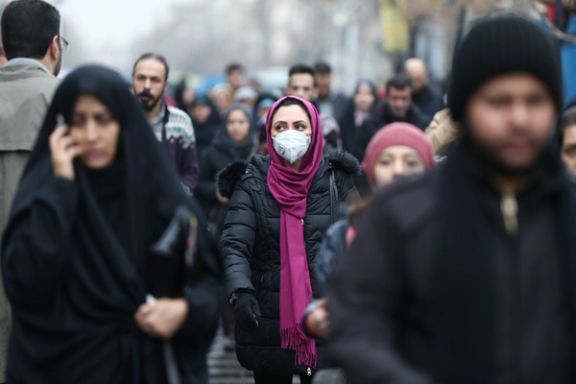
A former official in Iran's Covid Taskforce says the country’s Covid deaths were nearly twice the figures authorities reported for the first two years of the pandemic.
Speaking to the reformist Etemad newspaper, Ali-Akbar Haghdoust, head of the Covid Taskforce’s epidemiology committee, said estimates based on some studies, including a study by Ardabil Medical Sciences University published in early March 2023, shows that 240,390 Iranians died from Covid between February 2020 and February 2022 against the official figure of 136,166.
According to Haghdoust, other studies have shown that real number of deaths from Covid ranged from 45.2 to 49.4 percent higher than official figures.
“It does not entail much negative consequences to say this today, but many experts and specialists in the field of health and even other fields such as economics and politics, who criticized the government for untrue reports of Covid infections and deaths between 2020 and 2022 were harshly treated, because questioning the official figures proved health authorities were hiding the facts,” he said.
Iran was the second country in the world after China to declare an epidemic in February 2020 and reported nearly 145,000 Covid deaths, the Middle East’s highest official level, and 7.5 million confirmed cases.
From the early days, some health specialists and others alleged that Iran’s reported deaths were much lower than the real figures. Based on statistics like burials in Tehran, some suggested that the true number of deaths could be as high as 500,000.
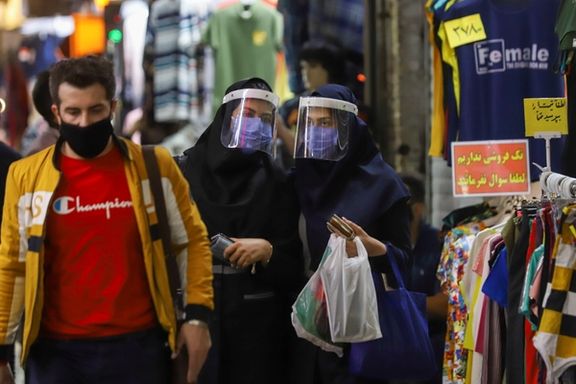
Researchers tracking the pandemic globally have noted that “excess deaths” reflect many factors, including those indirectly due to Covid including a stretched health system, but allegations abounded at the time that Iranian authorities were deliberately under-reporting Covid deaths.
A study published by the Lancet in March 2022 suggested that in the first two years of the pandemic − up to December 31, 2022 −there were globally 18 million excess deaths, with only 6 million officially attributed to Covid.
Many Iranians also blamed Supreme Leader Ali Khamenei for putting a ban on importing vaccines developed in the United States and Britain in January 2021, for causing many more Covid deaths than if vaccination efforts of the government of President Hassan Rouhani had not been delayed for months.
Iran's Supreme Leader argued that these vaccines had to be avoided because these countries could be testing their vaccines on other nations and urged developing vaccines domestically.
Khamenei's ban was supported by hardliners who following his lead said Iranians could not be used as "guinea pigs" to test Western vaccines. The Rouhani administration reluctantly backed off and looked for joint production with Cuba, purchases from several countries including China, Russia, and India, and using homegrown vaccines as they would become available.
At the time, the US-German Pfizer, US-made Moderna and the British-made AstraZeneca were the only vaccines approved internationally, although Bahrain and the United Arab Emirates had already approved the use of China’s Sinopharm which was later imported by Iran too. Sinopharm accounted for over 80 percent and AstraZeneca for around 10 percent of all vaccinations in Iran.
Vaccination picked up when hardliner Ebrahim Raisi assumed the presidency in August 2021 and vaccines that had been ordered began to arrive. In September 2021 only around 14 percent of Iranian had been vaccinated.
Some of the country’s vaccine producers, including the state-owned Barekat Foundation, received hundreds of millions of dollars to start their vaccine development program from scratch despite having had no experience in the field. None of the several vaccines developed domestically was ever approved by the World Health Organization.
Homegrown Covid vaccine factories, however, began shutting down in mid 2022 for lack of demand as many who were vaccinated with foreign vaccines refused to get homegrown ones as boosters.
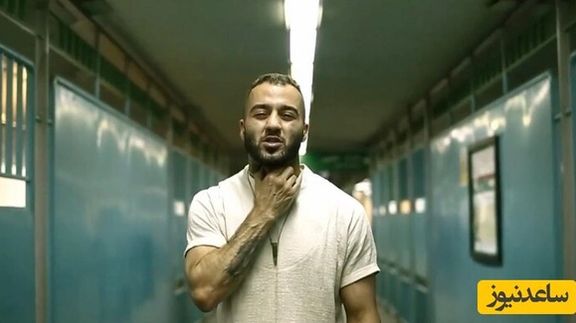
Iranian rapper Toomaj Salehi has been sentenced to further jail time as the regime cracks down on dissent, holding the celebrity as an example to the nation.
He has been convicted to "one year imprisonment, two years passport annulment, and participation in a behavioral management course," as revealed by his lawyer on Monday. Amir Raisian, sharing the announcement on social media, explained that Salehi's conviction is linked to "propaganda against the system" and the rapper's grievances against case officers.
As the regime continues to battle dissenting voices, prominent figures such as Salehi have been punished harshly, with many receiving jail time, travel bans and bans on work, to deter the public from further protest.
Salehi's lawyer penned an open letter to Gholamhossein Mohseni Ejei, the head of the judiciary, characterizing the legal proceedings as "the strangest and most extraordinary." The lawyer raised questions about the process's conformity to criminal procedural laws.
Salehi, initially released on bail on November 18 after enduring 252 days in prison, found himself back in custody just 12 days later. This followed the release of a video in which Salehi detailed the torture he endured during his imprisonment. The rapper, in the video, cited the experiences as the basis for his complaints against prison officials and government-affiliated media.
Salehi's social media account reported on December 14 that he suffered "severe damage to the eyes and face" during his latest arrest by government forces, contradicting official statements and raising concerns about the adherence to the law during the violent incident in Babol.
Salehi gained fame for his protest songs that tackled social issues and government injustices in Iran. His first arrest in October 2022 was a component of a wider crackdown on political dissidents of the regime, a response to the protests triggered by the death of Mahsa Amini in morality police custody.
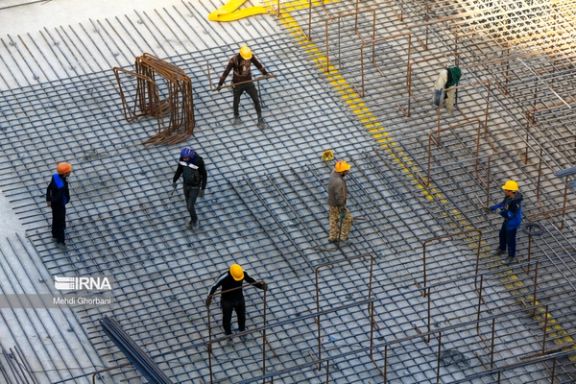
The suicide of six workers at a petrochemical plant in Iran in less than two years is viewed by a prominent economist as an extreme form of protest.
Hossein Raghfar, an economist at Tehran's Al- Zahra University, known for his research on poverty in Iran, expressed this perspective in an interview with the Didban-e Iran news website after two workers, Javad Norouzi and Mostafa Abbasi, attempted suicide at the Ilam Petrochemical Plant in Ilam Province. Their attempt was by hanging themselves, and although they were rescued by colleagues, they are reportedly in critical condition in the hospital.
Raghfar believes the widespread corruption in the government and mismanagement of the economy, mostly controlled by regime insiders, drive some workers to the desperate act of suicide.
The two workers were among thirteen workers the company announced Thursday it wanted to lay off. Colleagues also told ILNA website that the two men hanged themselves at the plant to make a point so that authorities could not claim family issues had driven them to suicide.
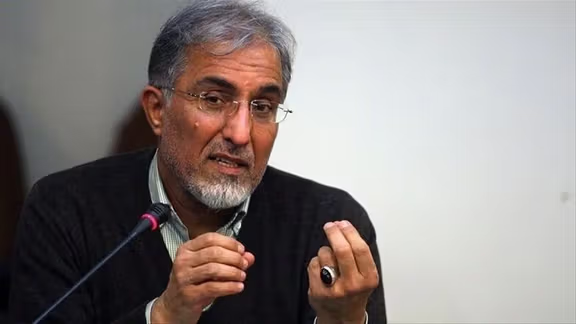
In July another employee of the company, Heydar Mohseni, a married father of two, took his own life after receiving a dismissal order after eighteen years of service. This was the fourth such incident within a period of twelve months.
With around 2,000 employees, Ilam Petrochemical Plant is the largest private sector petrochemical company in the west of Iran. However, its production, inaugurated in 2020, is currently only at around fifty percent of its nominal capacity due to feed procurement issues.
Workers have reported receiving very low wages for harsh working conditions, with irregular payments. Like many Iranians, they have also had to endure austerity resulting from an inflation rate of well over 40 percent in the past three year.
Hossein Raghfar stated that "self-destruction and suicide are one of the most acute and extreme forms of protest to the chaos caused by wrong economic policies." He attributed the prevalence of depression and extreme actions to the perception of widespread financial corruption in government systems, which can lead to anger, rage, and, ultimately, suicidal acts as a form of protest and rebellion when economic and social policies erode hope in the future for many people.
Company officials say the workers who attempted or committed suicide were contract workers and declined to take responsibility. However, this is what most oil and petrochemical sector companies do, by not offering permanent employment. Their owners and managers are mostly well-connected people, who get away with violating rules and regulations.
Other workers told ILNA that for a month there had been talk of laying off thirteen workers, all of whom had an employment record of between eight and eighteen years. Workers claim laying off these workers for redundancy is only an excuse to replace them with others.
“The petrochemical plant is our only hope. The only place we can work. Where can we find work if we are sacked from here,” ILNA quoted workers as saying.
“You cannot violate the job security of workers with 8 to 18 years of service by pointing a finger at contractors and arguing that contractors leave, so the workers [in their employment] must leave, too,” Farshad Esmaili, labor law expert, told the Iranian Labour News Agency (ILNA).
“Outsourcing, dropping the value of labor, temporization [of employment] and deregulation which are the characteristics of neo-liberal economy, are policies that lead to worker suicide,” he said.
Ilam has one of the highest rates of unemployment among Iranian provinces as well as the highest rate of suicide in the country in all but three years over the past three decades.